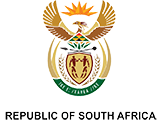Dear Fellow South African,
We have recently returned from Beijing, where we attended the summit of the Forum on China-Africa Cooperation (FOCAC), which brought together heads of state and government from across the continent. The summit was preceded by my second state visit to the People’s Republic of China where a number of Cabinet ministers and myself were hosted by Chinese President Xi Jinping.
A number of Ministers and myself had an opportunity during the visit to meet several Chinese companies that operate in South Africa or are looking at opportunities in our country.
One of these companies was Hisense, a Chinese electronics manufacturer that has been part of an exciting South African success story.
Just over 10 years ago, Hisense established a R350 million manufacturing plant in Atlantis Industrial Park in the Western Cape. Having grown into a prominent brand in the South African market, Hisense is now exporting some of its products to other African countries and the United Kingdom from its Atlantis plant.
The company reports that it has created over 1,000 direct and over 5,000 indirect jobs in Atlantis. Local producers are prioritised for the company’s packaging needs. Hisense provides on the job skills training to its workforce and has a skills transfer programme between China and South Africa for technicians and engineers.
The Hisense story shows the great potential that exists for investment in advanced manufacturing in South Africa and to reach a far broader continental market. It is also a good example of job creation, skills development and technology transfer.
Hisense is just one of a growing number of Chinese companies that are expanding their footprint in South Africa, bringing much-needed investment and jobs. I met with other Chinese companies that are looking to invest in South Africa, particularly in the areas of energy, infrastructure, technology and advanced manufacturing.
During the state visit, China and South Africa agreed to upgrade our relationship to an All-Round Strategic Cooperative Partnership in a New Era. This signifies the strengthening of the political, economic and social ties between the two countries.
China is our largest trading partner, having overtaken the European Union in 2023. However, there is an imbalance in the structure of our trade. South Africa exports mainly minerals and agricultural products to China and imports largely manufactured products from China.
During our discussion, Chinese President Xi Jinping expressed his support for the development of South Africa’s manufacturing capacity and to receive greater volumes of finished goods from South Africa.
President Xi has committed China to open its markets to more South African products and would seek to further broaden the frontiers for Chinese investment in the South African economy.
We are particularly encouraged at the potential of greater cooperation, investment and trade between our two countries in pursuit of low-carbon, climate resilient economic growth. For example, South Africa has investment opportunities in the electric vehicle sector, renewable energy, green hydrogen and energy storage – and China as a proven track record in developing innovative solutions in these areas.
There is also great potential, and much interest, for Chinese private commercial firms, state-owned enterprises and banks to invest in our country’s infrastructure build programme. This aligns with our plans to modernise our infrastructure by investing in the expansion of ports, rail and road networks.
Investment does not only flow in one direction. I also met with South African companies operating in China. They have found that South African and Chinese companies can complement each other well, and have both benefited from an exchange of expertise and technology.
The value of such cooperation extends beyond our two countries. The African Continental Free Trade Area (AfCFTA), which will provide access to a market of over 1.3 billion people, provides an even greater incentive for investment by China and other countries in Africa’s manufacturing capacity.
This was underlined during the FOCAC summit attended by more than 50 African countries, where President Xi announced ten partnership actions that China would take together with African countries to support the modernisation of their economies. These actions cover areas like trade, industrial development, agriculture, health and infrastructure.
🇿🇦His Excellency President @CyrilRamaphosa speaks to members of the media on conclusion of South Africa’s visit to the People’s Republic of China #SAinChina 🇿🇦🇨🇳#FOCAC2024 🌍#BetterAfricaBetterWorld 🌍 pic.twitter.com/rVPLX48mPo
— The Presidency 🇿🇦 (@PresidencyZA) September 6, 2024
At a time when African economies are growing closer together, China’s technological capabilities can support Africa’s industrialisation and enable the continent to export more than just raw commodities.
The strengthening of ties with major trading partners like China continues to yield benefits for the South African economy and people. The Hisense investment in Atlantis is a case in point, with many other companies following its lead.
It is clear that relations between South Africa and China have entered a new era of opportunity. Our visit has strengthened trade and investment ties and cemented our shared commitment to grow our economy, create jobs and advance prosperity for the people of our two countries.
With best regards,

Tweet



